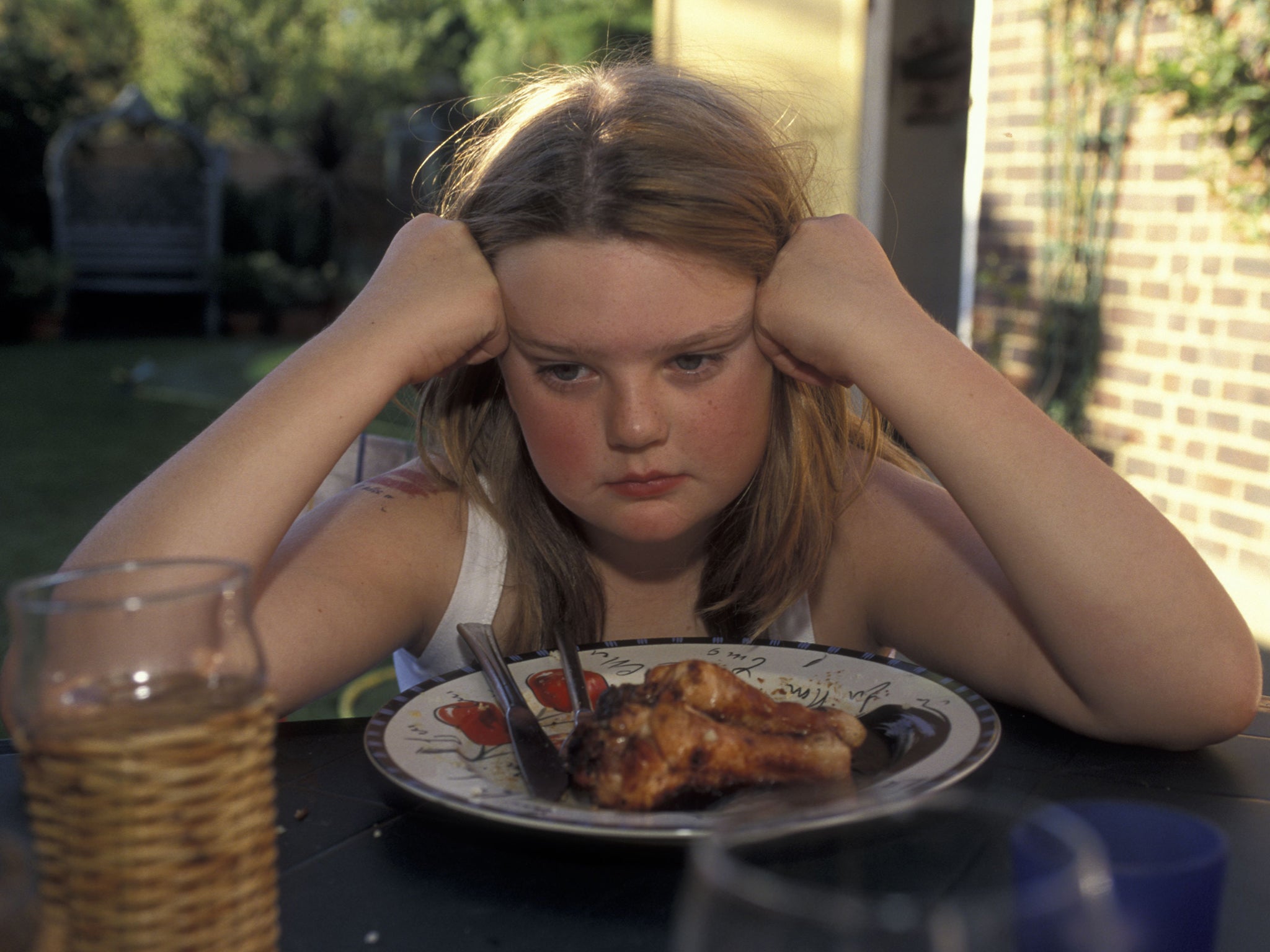Children who are fussy eaters may be anxious or depressed, say scientists
Pickiness is usually dismissed as just a phase, but scientists say it can signify mental problems

Your support helps us to tell the story
From reproductive rights to climate change to Big Tech, The Independent is on the ground when the story is developing. Whether it's investigating the financials of Elon Musk's pro-Trump PAC or producing our latest documentary, 'The A Word', which shines a light on the American women fighting for reproductive rights, we know how important it is to parse out the facts from the messaging.
At such a critical moment in US history, we need reporters on the ground. Your donation allows us to keep sending journalists to speak to both sides of the story.
The Independent is trusted by Americans across the entire political spectrum. And unlike many other quality news outlets, we choose not to lock Americans out of our reporting and analysis with paywalls. We believe quality journalism should be available to everyone, paid for by those who can afford it.
Your support makes all the difference.It can be a frustrating and disheartening routine for all concerned: a small child pushes unwanted food around their plate, while an exasperated parent looks on.
However, scientists have discovered that picky eating in small children is not only a sign of a food fussiness, but could also be a precursor to a serious mental problems that should not be ignored.
Parents and doctors who view fussy eating as a passing phase could be making a grave mistake, a study suggests.
Even “moderate” pickiness was associated with significantly increased levels of depression and anxiety in a population of more than 3,000 children aged two to six.
Those with highly selective eating habits were more than twice as likely as normal eaters to have a diagnosis of depression.
Lead researcher Dr Nancy Zucker, director of the Duke Centre for Eating Disorders in the US, said: “The question for many parents and physicians is, when is picky eating truly a problem?
“The children we are talking about are not just misbehaving kids who refuse to eat their broccoli.”
The study, published in the journal Pediatrics, found that more than a fifth of the children studied were selective eaters. Of these, nearly 18 per cent were classified as “moderately picky” and about 3 per cent as “severely selective”. Children with both moderate and severely selective eating habits displayed symptoms of anxiety and other mental problems.
Dr Zucker added: “These are children whose eating has become so limited or selective that it is starting to cause problems.
“Impairment can take many different forms. It can affect the child’s health, growth, social functioning and the parent-child relationship. The child can feel like no one believes them, and parents can feel blamed for the problem.
“There’s no question that not all children go on to have chronic selective eating in adulthood. But because these children are seeing impairment in their health and wellbeing now, we need to start developing ways to help these parents and doctors to know when and how to intervene.”
Some children who refuse to eat might have heightened senses, causing them to be overwhelmed by the smell, texture and taste of certain foods, she pointed out.
A bad experience with a certain food could lead to anxiety when a child is given something else that is new and “untrustworthy”.
New remedies were needed for sensitive children with frequent experiences of “palpable disgust”, said Dr Zucker.
Join our commenting forum
Join thought-provoking conversations, follow other Independent readers and see their replies
Comments